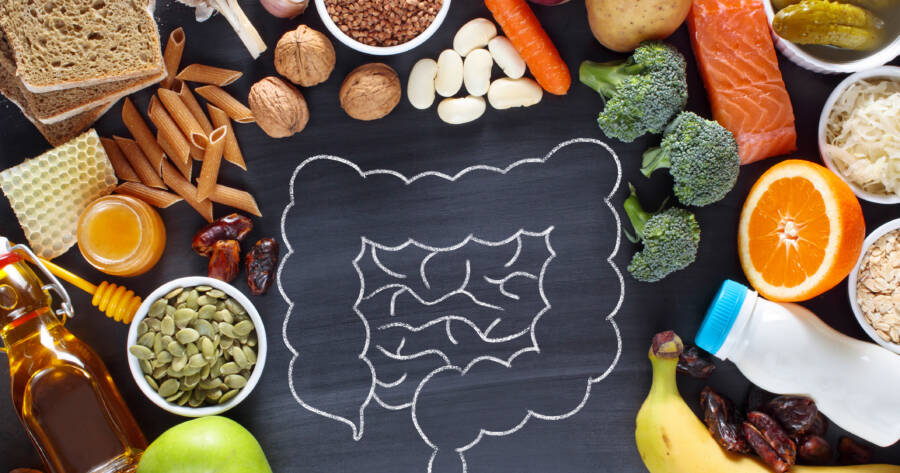The human body is home to trillions of microbes, collectively known as the microbiome. These tiny organisms play a crucial role in various bodily functions, including digestion, metabolism, and immune response. Maintaining a healthy balance of gut microbiota is essential for overall well-being, and one effective way to achieve this is through diet.
Foods to Optimize Digestion
A well-balanced diet rich in specific nutrients may significantly improve digestive health. Incorporating certain foods into your daily meals can help promote optimal digestion and alleviate common digestive issues such as bloating, gas, and constipation. Here are some key foods to consider:
- Yogurt: A probiotic powerhouse, yogurt is fermented milk that contains live bacteria that aid in digestion and enhance the gut microbiome.
- Kefir: Similar to yogurt, kefir is a fermented milk drink that is packed with probiotics and beneficial enzymes that support digestion and overall gut health.
- Kombucha: This fermented tea beverage is rich in probiotics, antioxidants, and organic acids that contribute to improved digestion and gut health.
- Sauerkraut: A fermented cabbage dish, sauerkraut is a great source of probiotics and digestive enzymes that promote healthy digestion and nutrient absorption.
- Kimchi: Another fermented vegetable dish, kimchi is made from cabbage and various seasonings. It is a rich source of probiotics and supports gut health.
Prebiotic & Probiotic Foods
Prebiotics and probiotics are essential components of a gut-friendly diet.1 Prebiotics are non-digestible fibers that feed the beneficial bacteria in the gut, while probiotics are live microorganisms that directly contribute to the gut microbiome. Here are some notable prebiotic and probiotic food sources:
- Prebiotic Foods:
- Bananas: Contain fructans, a type of prebiotic fiber that promotes the growth of beneficial gut bacteria.
- Garlic: Contains inulin, a prebiotic fiber that supports gut health and immune function.
- Onions: Rich in fructans, onions contribute to the growth of beneficial gut bacteria.
- Apples: Contain pectin, a prebiotic fiber that aids in digestion and supports gut health.
- Probiotic Foods:
- Miso: A fermented soybean paste, miso is a rich source of probiotics and enzymes that support digestion and gut health.
- Tempeh: A fermented soybean product, tempeh is packed with probiotics and prebiotics, making it a double whammy for gut health.
- Natto: A fermented soybean dish, natto is known for its high concentration of probiotics and its potential health benefits, including improved digestion.
Microbiome Nourishing Dishes
In addition to incorporating specific prebiotic and probiotic foods, there are various recipes that specifically target the nourishment of the gut microbiome. These recipes often combine a variety of gut-friendly ingredients to create delicious and nutritious meals that support digestive health.
- Gut-Healing Bone Broth: This nourishing broth is made by simmering bones and vegetables for an extended period, resulting in a rich source of collagen, amino acids, and minerals that support gut health.
- Fermented Vegetable Soup: A delicious and tangy soup made with fermented vegetables like sauerkraut, kimchi, and kombucha. This soup is packed with probiotics and digestive enzymes that promote gut health.
- Probiotic Oatmeal: A twist on the classic breakfast, probiotic oatmeal is made by combining oats with kefir or yogurt. This combination provides a healthy dose of prebiotics and probiotics to kickstart your day.
Gut-Friendly Salad: A vibrant and flavorful salad featuring a variety of prebiotic vegetables, such as leafy greens, carrots, and onions, topped with a probiotic-rich dressing made from yogurt or kefir.
Gut-Friendly Cookbook Roundup
Embarking on a journey to enhance your gut health? Look no further than some of the most esteemed cookbooks in the field. “Eat Yourself Healthy” by Dr. Megan Rossi offers a wealth of scientifically-backed recipes aimed at nurturing a healthy microbiome. For those intrigued by fermented foods, “Fermented Vegetables” by Kirsten K. Shockey and Christopher Shockey provides a comprehensive guide to crafting probiotic-rich dishes at home. Additionally, “The Complete Gut Health Cookbook” by Pete Evans presents a diverse range of dishes, from gut-soothing soups to fiber-packed salads, all designed to support optimal digestion and overall well-being.2 Whether you’re a seasoned chef or new to the kitchen, these cookbooks offer accessible and delicious ways to prioritize your gut health. Dive in and discover a world of flavors that love your gut as much as you do
Why You Should Learn More About Gut Health Recipes
The gut microbiome plays a pivotal role in overall health and well-being. By incorporating gut health recipes into your diet, you can nourish and support the trillions of microbes residing within your digestive system. These recipes provide a natural and effective way to improve digestion, boost immunity, and promote overall well-being. Explore the vast array of
